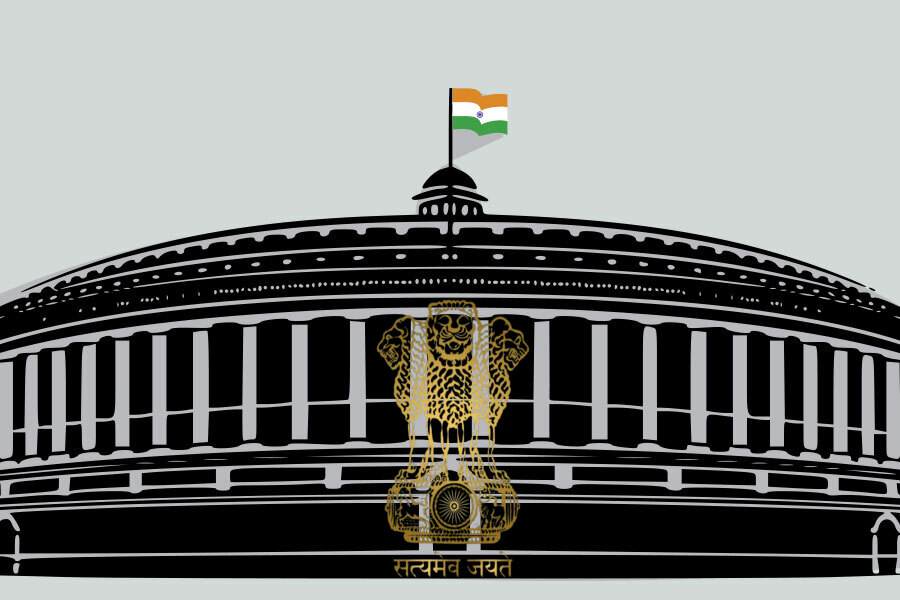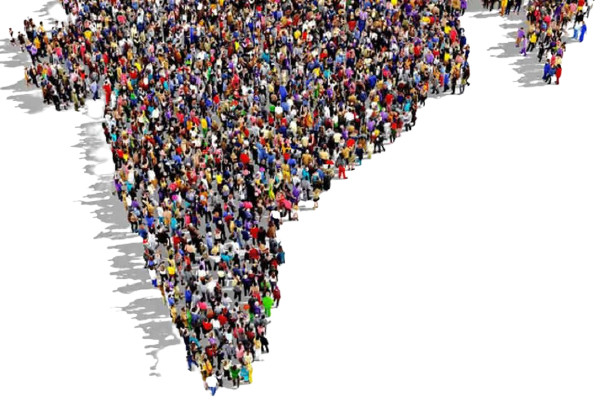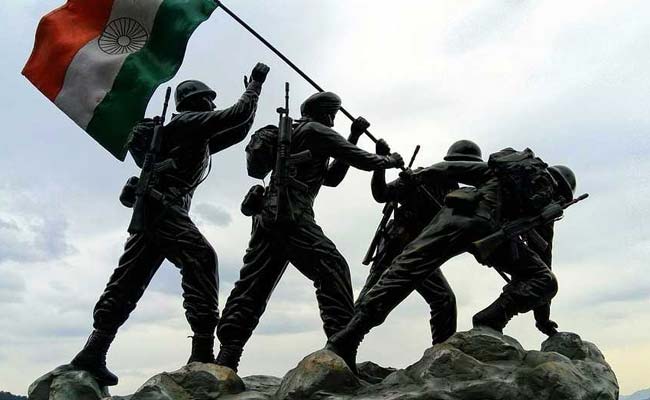
- Crossroads of nationalism, trans-nationalism lingering with the quest for identity in ethnic, religious, cultural and racial spheres have become the critical stimulants in our day to day discourse.
- India was the greatest beneficiary of this age of globalization as our economic progress and standard of living exponentially increased compared to the Nehruvian socialist license-quota Raj.
- But in recent times the post modern and woke culture that have emerged in the west is challenging the foundational values of the Bharatiya nature.
- Bharat, in this clash of civilizational values and conflicting state of affairs in the democratic world, needs to reinvigorate its cultural ethos in order to set an example to the world.
- Vacillating viewpoints both supporting and opposing the rise of a new India, are standing on the crossroads of a post structural nation-state structure, where the notions of political power and authority are undergoing a paradigm shift.
The footprints of globalization, which aspired to provide for a new, liberal, and open world order by assuring new economic opportunities, political stability and co-operation has often encountered discontent and critique by experts who analyze India’s national security. The powerful transnational corporate entities which are gathering personal data of citizens to stimulate and tinker with the political opinions, impact the nature and outcomes of public policy, manipulate the laws and judicial institutions to make them favorable for the smooth functioning. These corporate entities have created a deep state of crisis for the survival of liberal democratic values, which are thriving in India despite its consistent downplaying by global media, NGO’S and a section of academia.
Crossroads of nationalism, trans-nationalism lingering with the quest for identity in ethnic, religious, cultural and racial spheres have become the critical stimulants in our day to day discourse. But however, making a clear distinction between Indic civilizational prism and the western prism becomes very critical for us in order to understand the stark differences and nuances that exist in these two prisms. The rise of domestic identities of nationalism in the western cultural consciousness is naturally attributed Judeo-Christian notions of the western civilization or to the re-emergence of 19th century nationalism, which harps back on territorial ambitions, imperialistic tendencies, cultural and racial superiority and warmongering.
The re-awakening of Indic consciousness is based on dharmic principles, which are not religious in its nature, but embark upon an open architecture that allows space for multiple identities and philosophical perspectives to blossom.
But the re-awakening of Indic consciousness is based on dharmic principles, which are not religious in its nature, but embark upon an open architecture that allows space for multiple identities and philosophical perspectives to blossom. But however in contemporary times, there is a lack of clarity and understanding of these issues from the Bharatiya perspective. So, it’s important to examine these issues from the prism of an Indic Nationalist.
Issues challenging the state of democratic polity in India
Political representation, participation of the people in the decision making, adherence to the rule of law and constitutionalism, are the fundamental principles of a working liberal democracy. These ambitious values, often idealistic in its avenues, have been under stress in a globalised India. Before we assess the reasons for these, a clear understanding of the western context becomes necessary. We need to understand that, in the western civilization, after the age of enlightenment and rationalism an industrial age started developing. This gave rise to autonomous individual thinking and enterprise mindset.
Eminent sociologist Max Weber named it “Methodological Individualism”. This phenomenon of rationalism along with Protestant Christian ethics, gave rise to a neo-classical school of economics, which became popularly known as capitalism. This capitalist, entrepreneurial, industrial and even expansionary nature of the western democracies led to the rise of globalization. This brought about enormous socio-cultural exchange, political cooperation and economic expansion on a transnational scale.
India was the greatest beneficiary of this age of globalization as our economic progress and standard of living exponentially increased when compared to the past pre 1990’s era of a Nehruvian socialist license-quota Raj. The emergence of multiculturalism in the west to accommodate various races, ethnicities, religious and cultural identities and to give each and every individual his/her own liberal space to live as an integral part of the society. In India, this fancy and cosmetic idea of multiculturalism was imported by the eminent public intellectuals of this country which was strongly supported by the establishment including the political class, judiciary and the bureaucracy. The irony in this was that, Bharat through its civilization moorings which was accommodative of multiple and multitudes of Identities, which gave refuge to all the persecuted communities in the world through its syncretic and composite culture, had to import western values without any contest or any relevance.
In recent times the post modern and woke culture that has emerged in the west is challenging the foundational values of the Bharatiya nature.

The establishment of the English East India company in 1600 and its evolution into a ruling body had a significant impact on Indian polity in the long run. The period between 1773 and 1858 under the Company rule, and then under the British crown till 1947, witnessed a series of constitutional and administrative institutionalization processes. The nature and purpose of this process was to serve the Interests of Imperialist Britain and its colonial ideology. But, as a consequence of this, they (British) introduced the elements of the modern State into India’s political and administrative system. In fact we have to note that the Government of India act 1935 is the basis on which the constitution of India was framed in 1950. What initially appeared to be a pleasant liberal experience with these idealist virtues, turned out be a lot shadier and challenging to those very fundamental values of the west, and the reason being the intellectual ecosystem from that largely extols the western values and blindly applies it to our Indic context without any forbearance of thought or research of its synchronization with India today, and is almost in loggerheads with the western democratic values.
In recent times the post modern and woke culture that has emerged in the west is challenging the foundational values of the Bharatiya nature. In fact post modernism and post structuralism due to its turbulent nature of disintegration of stable institutional frameworks have changed the political landscape of the liberal democracies across the world. It has led to the rise of hyper rightist forces, and wokeism infested leftist forces which together have polarized the atmosphere, leading to the decay of core and commonly shared democratic values. While this new right, stringently propagates Judeo-Christian based western democratic models in the west, giving prominence to the local mainstream community, the new left baits upon the insecurities of immigrant, refugee communities by exploiting their victimhood to encash their popular support, I refer to his phenomenon as “weaponising victimhood”, as this exploitative trend further amputates social harmony by instigating violence, which sometimes becomes perpetual and cyclical. Today the western societies are far more fragmented, divided, polarized and violence prone.
“Weaponising victimhood” is an exploitative trend that further amputates social harmony by instigating violence, which sometimes becomes perpetual and cyclical.
Bharat, in this clash of civilizational values and conflicting state of affairs in the democratic world, needs to reinvigorate its cultural ethos in order to set an example to the world, as a model democratic republic with its venerable institutional heritage.
Each and every political party by creating its own vote bank on cultural identities, have abandoned the traditional ideas of liberalism and conservatism where identities were fluid and far more secular in their nature, these ideas had a great confluence with the Indic value system. The moorings of dharmic smrithi based modern constitutional framework, and elections based on the value and content of economic policies, and a healthy battleground of political ideas, principles and ideologies which can accommodate both the Indic and western values to their right context can be a way forward to initiate mutual trust and a healthy working relationship between the western democracies and Indian democracy. The space for liberal democratic values, with common and shared views, social integration, mutual respect and accommodation is under stress in the contemporary globalised democracies.
But India has the potential to become that shining example which can unite the world, for humanitarian causes, for which it should strengthen its domestic democratic institutions with at-most transparency, accountability, integrity and moral-ethical uprightness. For this to happen, serious administrative reforms, police reforms and the criminal justice reforms must be formulated and implemented in a systemic, effective and efficient manner.
Challenges to State Sovereignty and Contours of National Security

Sovereignty of the state is a very important component that holds a nation-state together, which indeed establishes the unity and integrity of a nation. The forces of globalization, which entered countries with a hope of providing better connectivity, outreach and co-operation on socio-cultural front, political and economic front, has eroded the state sovereignty significantly. The state is the supreme authority over any political territory and has the ultimate command over its citizenry. But this authority of state has been challenged by numerous forces which are operating beyond the frontiers of the legal boundaries. From the persistent threats such as international terrorism to the global challenge of climate change, from the power centers of international organizations to the assertive influence of the global market, state sovereignty has encountered numerous challenges due to which its strategic “withering away” of the state’s supreme authority has become a real and a serious phenomenon. Its direct effects lie on the national security and national interests, giving rise to nationalism and national identity as conscious strides towards a nation’s prosperous stature in the world.
Contemporary trends in global diplomacy also indicate an exponentially increased aggression, wherein as the representatives of the state, in social and mainstream media take direct potshots at each other behaving like the political agents appointed to spread propaganda, the Chinese method of wolf-warrior diplomacy has really driven this trend of tactical aggression with strategic goals. The rationale, provided by the governments is the expected caveats of national interest and national security. But it is also obvious because governments across the world realize and recognize the phenomenon of the erosion of state sovereignty.
India’s sovereignty has been effectively defended since its Independence.With constant threats and aggression from China and Pakistan leading to several devastating conflicts in the past and the continuation of their hostility towards India, we have managed to defend our national security with a fair amount of success. But as the nature of warfare is changing, and new threats such as cyber attacks and drone infiltration has made the nature of conflict more dependent on the latest cutting edge technology. The question before the policy makers of our national security architecture is, whether we have established stable and effective institutions to deal with our new and emerging challenges and if so, are they robust enough to successfully tackle these challenges?
Our government is aware of these challenges, and has formulated and initiated certain crucial steps to address them. The creation of the Chief of defense post and the changes in the structure of the National Security Council are the testimony for the ongoing revamp of India’s national security architecture.
In this multilateral world, every dominant country is trying to shape the geopolitics and geo-economics in its own favors to establish its sphere of Influence and National self identity.
Vacillating viewpoints both supporting and opposing the rise of a new India, are standing on the crossroads of a post structural nation-state structure, where the notions of political power and authority are undergoing a paradigm shift. In this multilateral world, every dominant country is trying to shape the geopolitics and geo-economics in its own favors to establish its sphere of Influence and National self identity. Amidst growing radicalization across the world and aggravating tensions between the adversities across India’s territory, there is an increasing demand to strengthen our national security.
With the nature of democratic politics, which has been fragmented and polarized in most parts of the world, the conflicts between states to establish their own supremacy will further escalate, making the world more hostile and difficult for mutual cooperation. But one’s observation of India’s emerging stature in the contemporary world clearly indicates that we have a formidable potential and human resource capacity to transform the world with greater stability and reliability. Global diplomacy, dialogue and a healthy discourse of issues and disputes aiming for peaceful resolutions is a prospective way forward along with mapping the disputes, legitimizing the prospective solutions and bridging gaps of mutual distrust as a confidence building mechanism. This is much needed to witness the de-escalation of heightened tensions in our contemporary world, and a new “Aatmanirbhar Bharat” will be the beacon of hope to the world to achieve these ambitious objectives.
(The author has a MA in political science from Bangalore University and is pursuing MA in international relations from Annamalai University. His areas of interest include Indian foreign policy, global diplomacy, geopolitics, Indian strategic thought and national security studies. Views expressed are author’s own)
References:
1) Stein, A. (2016). The great trilemma: Are globalization, democracy, and sovereignty compatible? International Theory, 8(2), 297-340. doi:10.1017/S1752971916000063
2) Fukuyama, F. (1989). The End of History? The National Interest, (16), 3-18. Retrieved April 20, 2021, from http://www.jstor.org/stable/24027184
3) VIF perspective “ India’s foreign policy and national security strategy” Editor C D Sahay Vivekananda International Foundation ISBN 987-93-86473-39-4
4) “ A brief History of Modern India” Spectrum publications New Delhi ISBN: 81-7930-759-X
5) “ The Ultimate Goal, A former R&AW chief deconstructs how nations construct narratives” Vikram Sood, Haper Collins publishers India. ISBN: 987-93-5357-952-4
6) https://www.belmont.edu/lockesmith/liberalism_essay/the_rise1.htmlThe Rise, Decline, and Reemergence of Classical Liberalismby Amy H. Sturgis
7) The end of liberal international order? G. John IkenberryInternational Affairs, Volume 94, Issue 1, January 2018, Pages 7–23, https://doi.org/10.1093/ia/iix241
8) Kołczy Kołczyńska, Marta. “Democratic Values, Education, and Political Trust.” International Journal of Comparative Sociology, vol. 61, no. 1, Feb. 2020, pp. 3–26, doi:10.1177/0020715220909881.
9) Beeson, Mark. “Sovereignty under Siege: Globalisation and the State in Southeast Asia.” Third World Quarterly, vol. 24, no. 2, 2003, pp. 357–374. JSTOR, www.jstor.org/stable/3993517.
10) Omagu, Donald O. “STATE, POLITICS, AND GLOBALISATION.” Journal of the Historical Society of Nigeria, vol. 21, 2012, pp. 70–98. JSTOR, www.jstor.org/stable/41857190.
Viswapramod is a PhD Scholar at the Department of International Studies and Political Science, Christ University, Bangalore. He has an MA in International Relations. Views expressed are the author’s own.

I always feel amused reading your article because you have a knack of doing it. Trust me I don’t lie 🙂
This was the first time, I am seeing the use of “Prism” word in a formal statement apart from science.
The concept of highlighting the woke culture was splendid.
The following statement was amazing.
“It has led to the rise of hyper rightist forces and wokeism infested leftist forces which together have polarized the atmosphere, leading to the decay of core and commonly shared democratic value. ”
Looking forward for another insightful article!
Cheers!